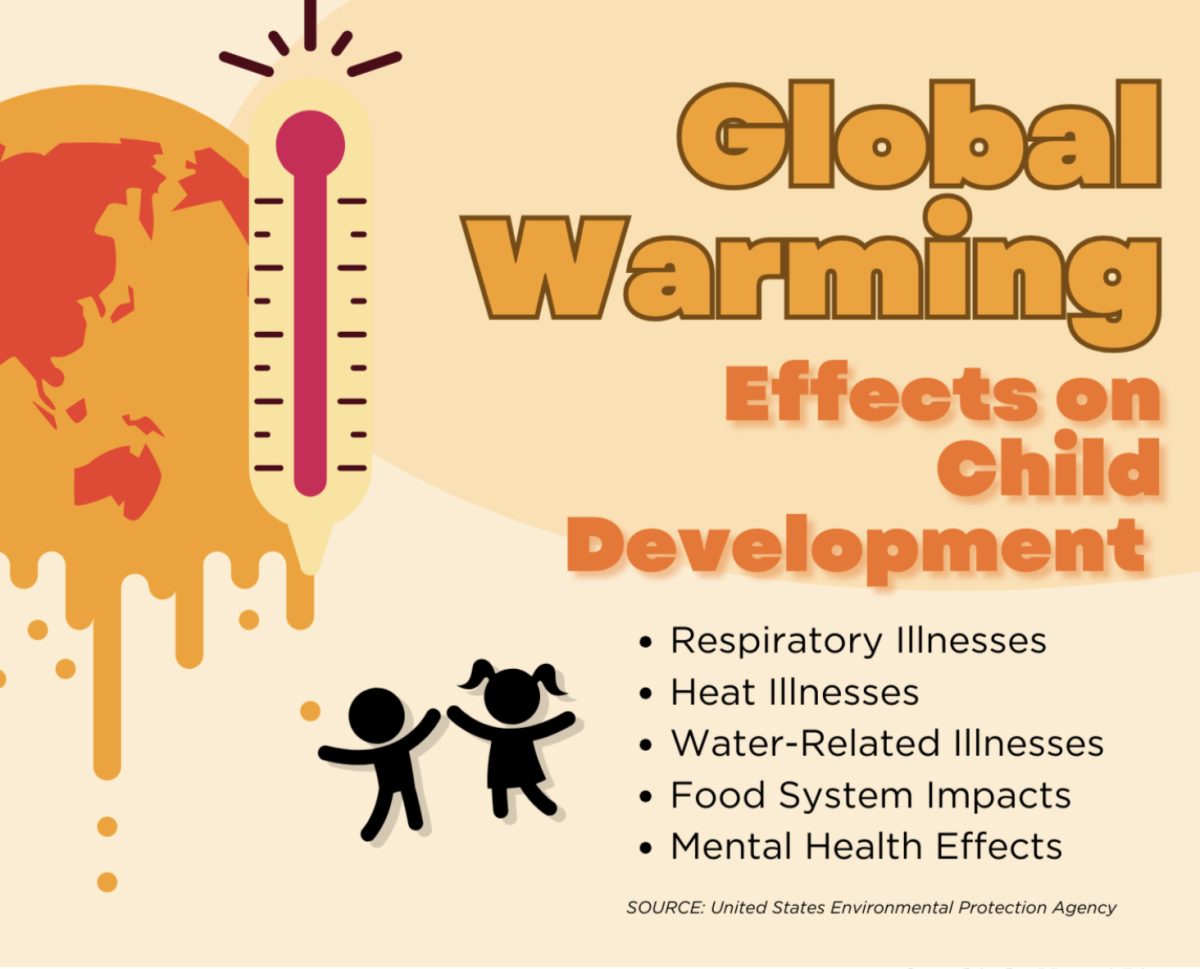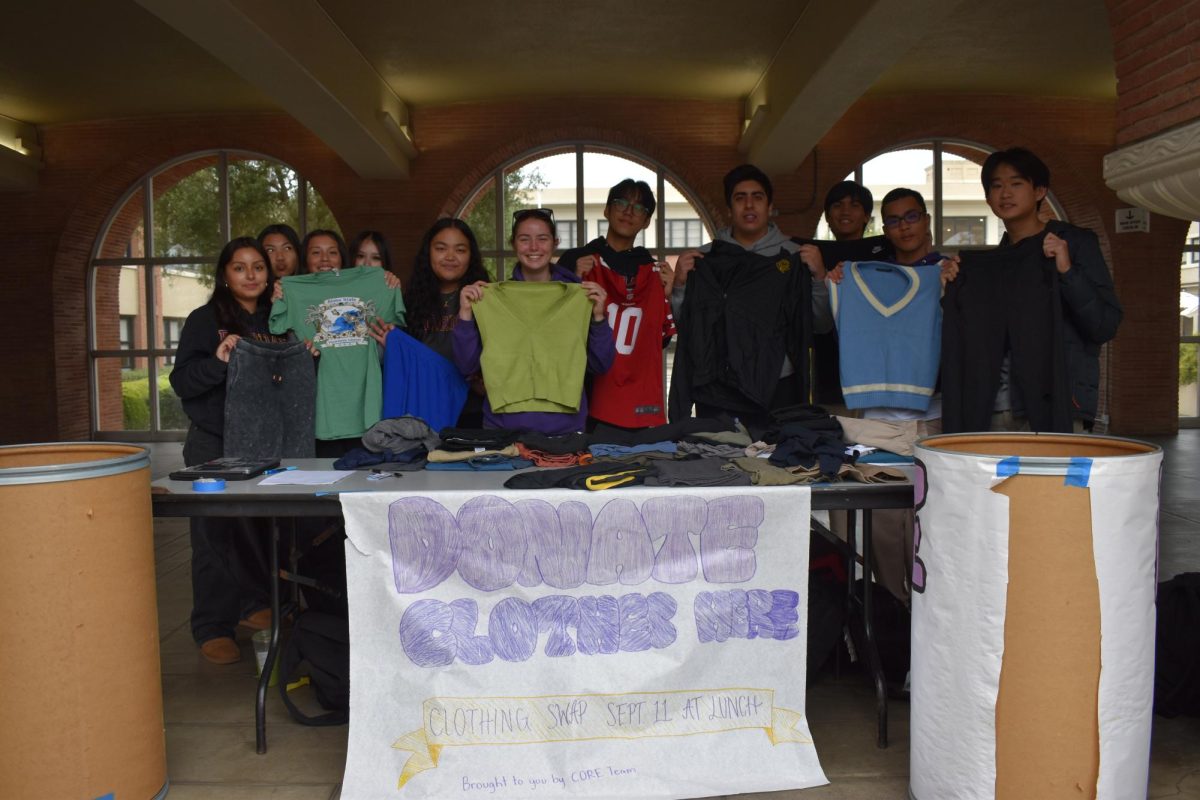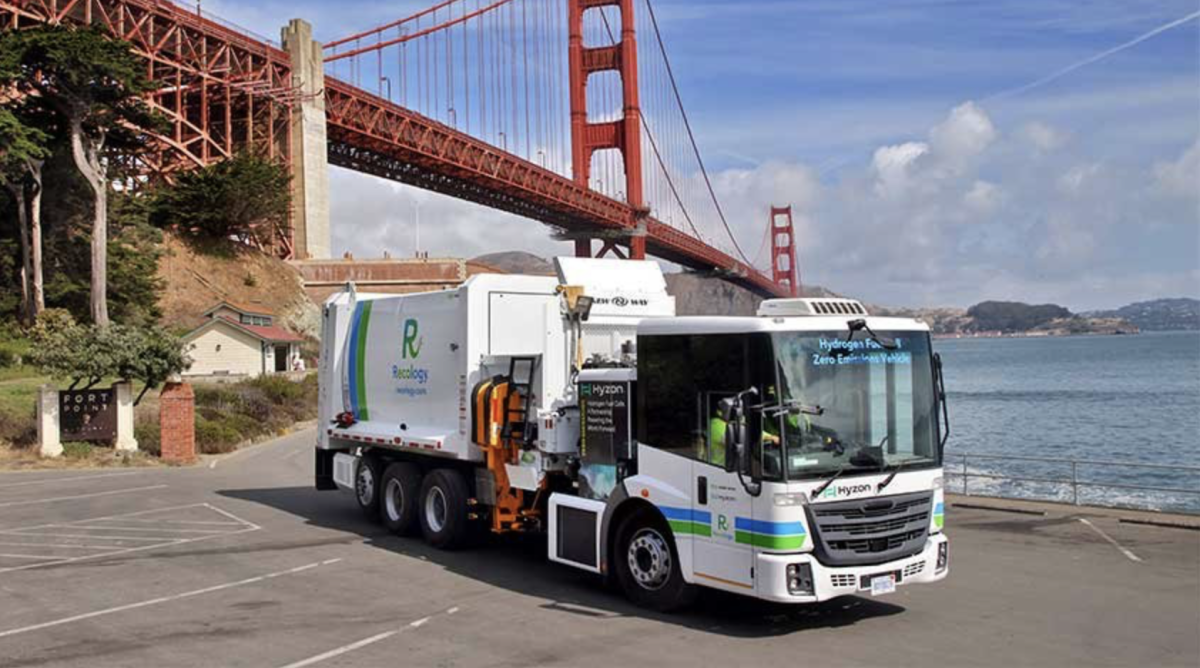The oceans are rising, summer weather lasts longer, and the air is turning into a murky haze. The Earth is heating up and so much change is happening. But how is climate change affecting child development?
Out of every demographic, children are thought to be the most affected by these changes. They are developing physically and breathing at a faster rate, meaning they have increased chances of inhaling dangerous pollutants.
Along with that, statistically, children spend more time outside. Taking all these factors into account, children, the next generation, and the future leaders of this world, are at the most risk for the effects of climate change.Each aspect of climate change brings its own risk factors. Increased levels of dust in the air due to droughts and smoke from wildfires increase a child’s chance of developing asthma.
The warming climate leads to a higher and longer allergy season, and almost year round, allergies for those prone to reacting to allergens such as pollen, increases.
Heat related illnesses have been on the rise as well. Prolonged time in and moving in a warmer climate leads to quicker exhaustion, dehydration, and in extreme cases, death.
In recent years, there has been a drastic increase in heat related ER admissions. Infants are at the most risk for developing heat stroke and other heat related illnesses.
Increased flooding has introduced more disease-carrying organisms into drinking water and bodies of water where people swim or recreate in.
Children have a higher chance of developing gastrointestinal and more serious illnesses because their immune systems are still developing. Overall, the awareness of external consequences of climate change are well known but theories and research on how this affects children are still developing.
AP Environmental Science teacher Michael O’Brien said, “Climate change causes a shift in living conditions that may not be conducive to traditional child rearing in a given region; it also causes psychological and physiological stress.”
Psychology teacher Jackie Grealish echoed this, saying, “Changes in climate means changes in lifestyles.”
“If temperatures increase or water availability decreases, it can force people to move to new places and become environmental refugees.”







